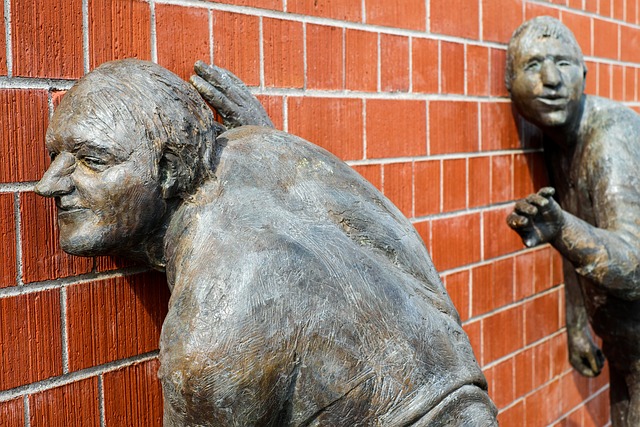In a healthy relationship, love and closeness are balanced with individuality. There’s connection, but also space. Support, but also freedom. But in an enmeshed relationship, that balance doesn’t exist. Instead, there’s an expectation—spoken or unspoken—that who you are should revolve around someone else.
And when you start to pull away? When you begin to set boundaries, make independent choices, or step into your own life? The reaction can be intense: Your autonomy hurts me.
If you’ve ever experienced this, you know how confusing and guilt-inducing it can be. Let’s unpack what it means, why it happens, and how to heal.
What Does “Your Autonomy Hurts Me” Mean?
At its core, this phrase—or the emotions behind it—reveals a relationship where one person’s sense of self is deeply entangled with another’s. In an enmeshed dynamic, there are unspoken rules about closeness and connection:
- “We think alike, we feel alike, we do things together.”
- “If you change, I lose a part of myself.”
- “If you need space, I must not be enough for you.”
- “If you disagree with me, you are abandoning me.”
When enmeshment is present, independence isn’t just seen as normal—it’s seen as a threat. Your autonomy—your ability to think, feel, and make decisions for yourself—challenges the invisible contract that says we are one unit.
And when you step outside that unit? The other person may react with:
- Guilt trips (“You used to care more about me.”)
- Emotional manipulation (“You’re hurting me by choosing this.”)
- Anger or resentment (“You’re being selfish.”)
- Playing the victim (“I guess I just don’t matter anymore.”)
It’s not always intentional. Often, the person reacting this way doesn’t even realize they’re doing it. But that doesn’t mean it isn’t damaging.
Where Does Enmeshment Come From?
Enmeshment usually doesn’t start with bad intentions. It’s often rooted in fear, insecurity, and unhealthy relationship patterns that have been passed down through generations.
Some common sources include:
- Parent-Child Enmeshment – If a parent relied on their child for emotional support, validation, or even identity (instead of providing that support for the child), the child grows up believing that love means self-sacrifice.
- Cultural or Family Expectations – Some families place extreme value on loyalty and togetherness, to the point where independence is seen as betrayal.
- Fear of Abandonment – When someone has been hurt, rejected, or abandoned in the past, they may cling too tightly to those they love, fearing that any sign of autonomy means they’re losing them.
- Codependency – If someone’s self-worth is tied to taking care of others, they may feel lost or unneeded when someone starts to set boundaries or take care of themselves.
The person who says, “Your autonomy hurts me,” isn’t necessarily trying to control you. Most of the time, they’re acting out of fear—fear of being alone, fear of not being needed, fear of losing love.
But here’s the truth: Real love isn’t about control. It’s about connection. And connection can only exist where there is freedom.
How to Heal from Enmeshment
If you’re in a relationship—whether with a parent, partner, sibling, or friend—where your independence is met with resistance, here’s how you can start breaking free from the cycle:
1. Recognize the Pattern Without Shame
If you grew up in an enmeshed environment, you may feel guilty just for wanting space. But needing autonomy doesn’t mean you don’t love the other person. It just means you’re a whole, separate individual—and that’s a good thing.
Start by noticing when guilt, obligation, or fear of upsetting someone is driving your decisions. Ask yourself: Am I making this choice because I want to? Or because I feel like I have to?
2. Set and Maintain Boundaries
One of the hardest parts of healing from enmeshment is setting boundaries—especially when the other person reacts with guilt, frustration, or even emotional withdrawal.
But here’s the thing: Their reaction is not your responsibility.
Healthy boundaries might sound like:
- “I love you, but I need to make this decision for myself.”
- “I care about you, but I can’t be responsible for your emotions.”
- “I still value our relationship, even if I have different opinions or needs.”
Boundaries don’t mean cutting someone off—they mean creating space for both closeness and individuality.
3. Separate Love from Obligation
Enmeshment teaches you that love means self-sacrifice, but real love is not about giving up yourself.
Ask yourself:
- Am I showing up in this relationship out of love or out of guilt?
- Do I feel like I have the freedom to be fully myself?
- Does this relationship make room for both of us to grow?
Love should never feel like suffocation.
4. Expect Resistance—But Hold Your Ground
When you start stepping into your own autonomy, the other person might not understand. They may push back. They may try to pull you back into the familiar dynamic.
This is where self-trust becomes essential. You are not responsible for managing their emotions, and you are not a bad person for growing.
5. Redefine Connection on Healthier Terms
Healing from enmeshment doesn’t mean cutting off the people you love—it means building a new, healthier way of being in relationships.
- Mutual respect instead of control.
- Emotional support instead of emotional dependence.
- Love that allows for freedom instead of love that demands self-abandonment.
You can be close to someone without losing yourself. And the right relationships—the ones built on true love, not fear—will allow you to be fully you.
Final Thoughts: You Are Not a Piece of Someone Else
If someone tells you, “Your autonomy hurts me,” it doesn’t mean you’re doing something wrong. It means they have wounds they need to heal. But you cannot sacrifice your freedom to protect someone from their own healing.
You are allowed to grow. You are allowed to change. You are allowed to be fully yourself, without guilt, without apology.
Because healthy love doesn’t say, “Don’t leave me.”
Healthy love says, “I trust you to be yourself, and I will love you anyway.”













